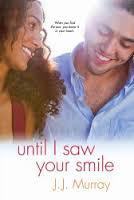The (Bitter) End: Pushing Ourselves to Finish Reading

Well, sir! Ms. Day will see *you* now.
By Alexa Day
A little over a year ago, I had a conversation with some fellow readers about a book I stopped reading after I encountered the word “Argh.” This book and its two sequels have been wildly successful, but I eventually found the first story unbearable for reasons too numerous to recount here. Because I’d stopped reading the first book, I saw no need to pursue the two that followed it.
I won’t be watching the movie version when it comes out in two weeks, either, but that’s another story for another day.
Anyway, about halfway through my shopworn diatribe against this book, one of my very patient reader friends nodded in agreement. She had also disliked that first book, she said, but something toward the middle of the third book reinforced my point more effectively.
I asked her why, if she’d disliked the first book so much, she’d read any more of the series.
“I have to finish things,” she said. “I couldn’t just stop reading.”
This phenomenon is mysterious to me. Life is short. I’m surrounded by books that tempt and entice me. I have a day job. There’s food to be eaten and beer to be drunk. I can’t invest nonrefundable time in books I don’t enjoy.
Still, every day, I see readers making the decision to continue reading books after making the decision that they dislike what they’re seeing. Some, like my friend, live by a code and must finish what they start. Others live with the hope that things will get better. Still others need to know just how bad things will get so that they can provide a well-informed critique.
I, personally, think “I didn’t finish it” is a complete and well-informed critique.
Still, I admire my friend’s persistence, even if I don’t understand it. She bought, paid for, and really hated all three books in the series I gave up on so early. She doesn’t hate the genre in general, and she hasn’t built any sweeping presumptions about kinky people or erotica writers on her experience. She just needed closure, and once she had it, she moved on with her reading life. And I have to admit that she made a more powerful argument about her issues with the book than I did about mine.
No doubt she’s just as confused by my refusal to finish. After about a third of the first book, a single word (again, it was “Argh”) sent me into a fury that lasts to this day. But had I lost something by throwing in the towel so soon?
Possibly.

Click to look past the lawyer stuff to the love.
I didn’t think I’d care for The Help after reading the word “alright” enough times to convince me that its presence was intentional. But I blew through most of it in one long sitting. Whatever my complaints about it might have been, The Help held my attention. I was pulled into its world quickly, and the characters were so real that I wanted to shake a couple of them. So I can’t say with a straight face that it’s not well written, right?
Similarly, J.J. Murray almost lost me when his lawyer hero committed a major privilege faux pas in Until I Saw Your Smile. That happened a pretty good way into the book, though, and I was willing to close my eyes to it because I’d gotten to know and care about the characters. A privilege faux pas of similar magnitude chased me away from Shonda Rhimes’s How to Get Away with Murder during its very first episode, though, and I haven’t been back since. I guess that set of characters wasn’t doing enough to overcome the privilege problem.
I’d like to think that I give new authors and genres a fair chance to earn my attention. I don’t take the decision to quit reading something lightly (especially if I paid for it), but I’m absolutely willing to make that decision if I have to. While part of me admires the reader who soldiers on through a series after being turned off by the first book, more of me just wants to hand that person a better book.
So do you believe in finishing at all costs? Do you have triggers that will stop you from reading another word? Tell all in the comments.
And follow Lady Smut. We never quit.




